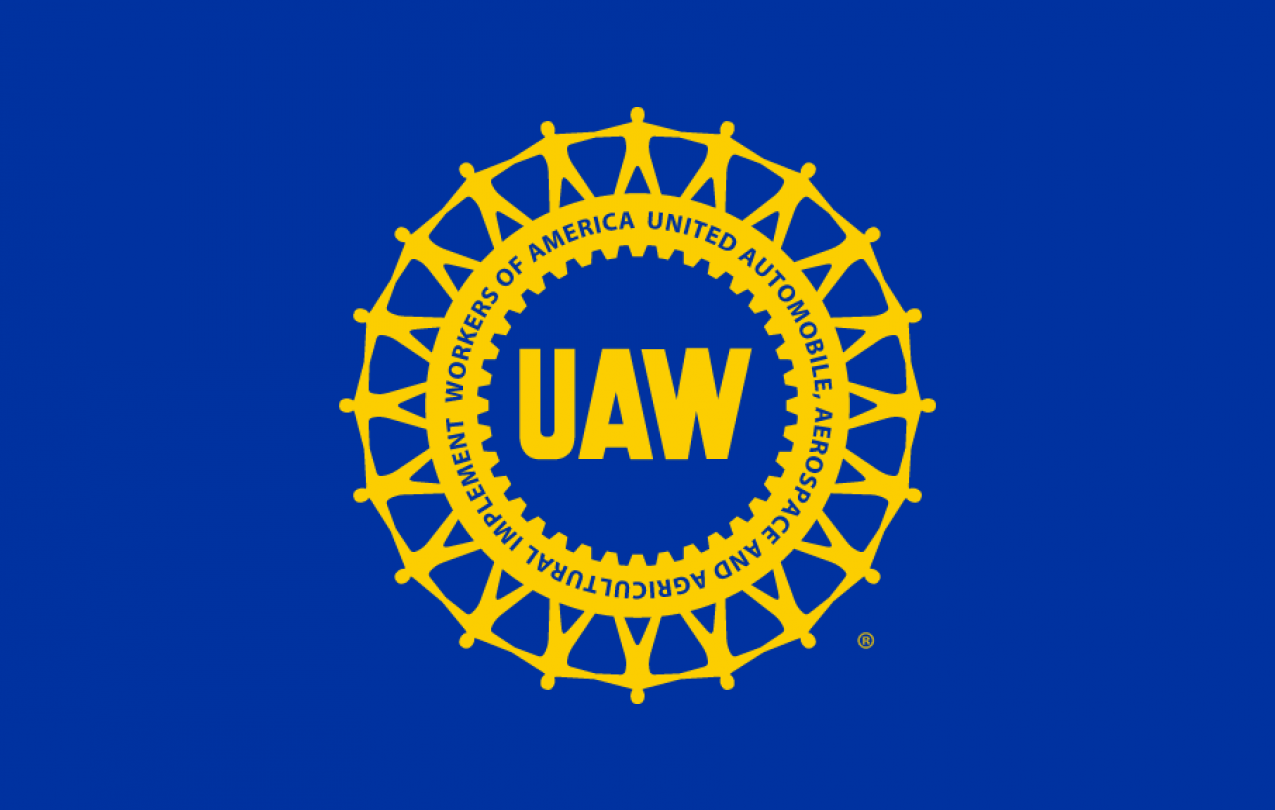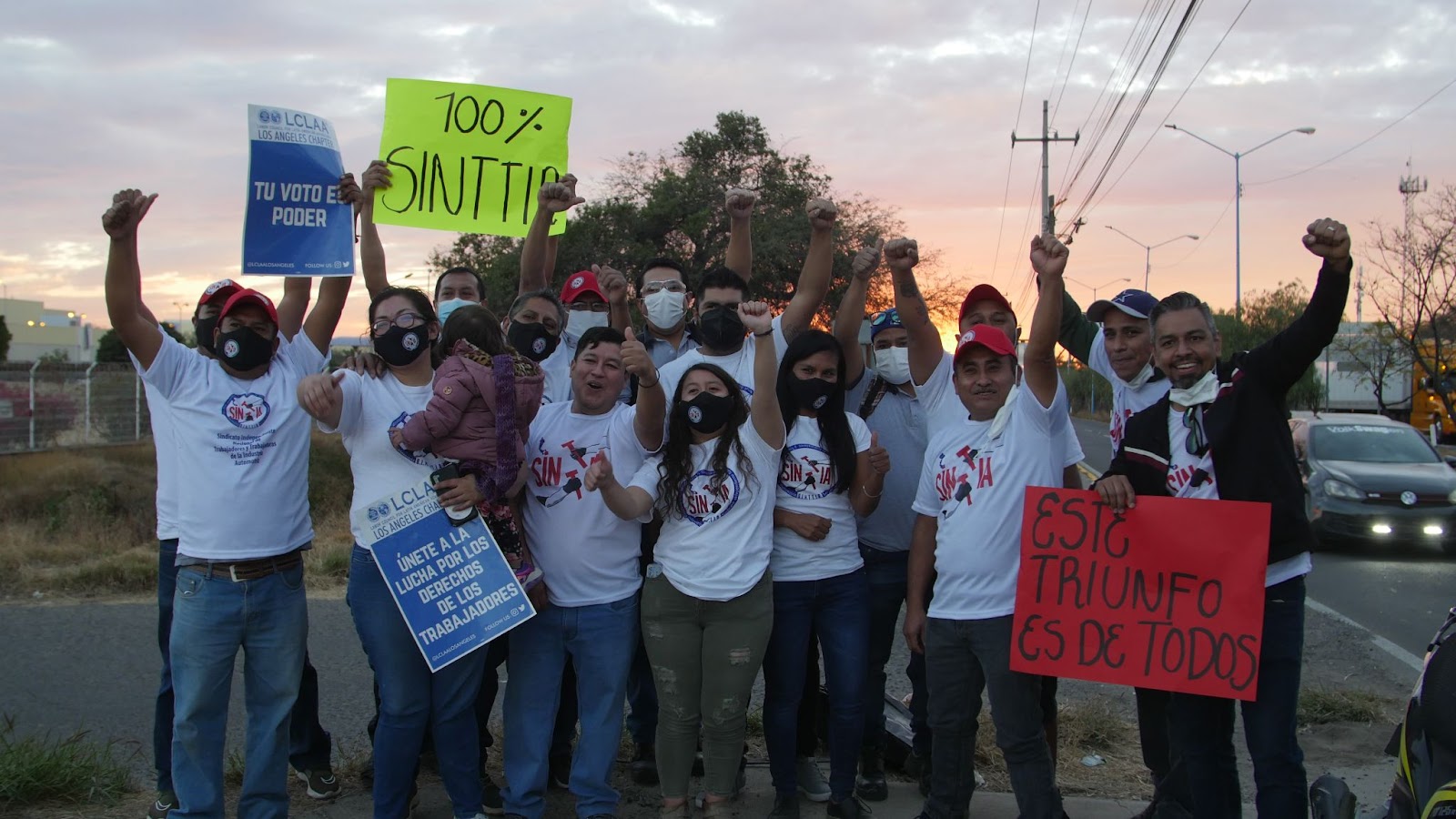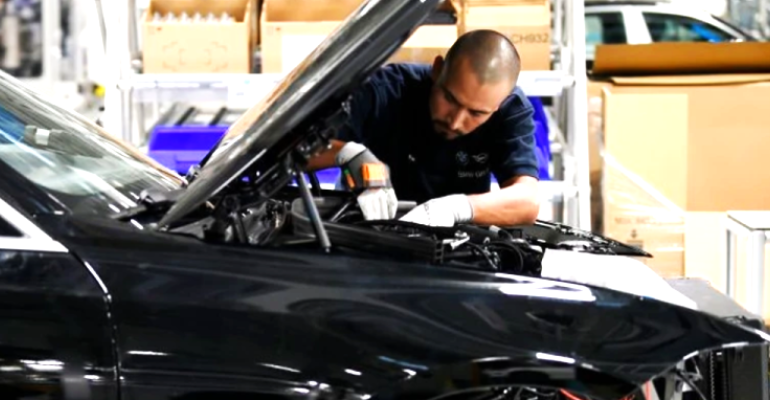After years of frustration, the UAW plans to renew its efforts to help auto workers in Mexico join unions that will demand better wages, benefits and working conditions.
The UAW International Executive Board is promoting a new initiative dubbed the Solidarity Project to support auto workers in Mexico “fighting for economic justice,” according to the union.
 The goal of the project is to provide resources to workers and independent unions in Mexico. It aims to strengthen cross-border ties between workers in the two countries, the Detroit-based UAW says.
The goal of the project is to provide resources to workers and independent unions in Mexico. It aims to strengthen cross-border ties between workers in the two countries, the Detroit-based UAW says.
“For decades, corporations have taken advantage of inadequate trade laws to offshore thousands of U.S. manufacturing jobs to Mexico, where workers’ wages and conditions have long been suppressed,” the UAW says in a statement. “Corporations use the threat of offshoring jobs as a cudgel to beat back worker discontent and organizing efforts in the U.S.”
Harley Shaiken, a labor expert from the University of California-Berkeley, says the best way to slow the migration of auto jobs from the U.S. and Canada is to pressure automakers and suppliers operating in Mexico to raise Mexican workers’ living standards through better wages and benefits.
A significant stumbling block to raising the wages of Mexican workers is the CTM, the union that nominally represents thousands of them at a variety of companies, including Ford and Stellantis. The CTM has enormous clout in Mexican politics but has not used its influence to improve the average Mexican’s standard of living, Shaiken says.
However, a series of reforms in Mexico driven by the U.S.-Mexico-Canada Agreement (USMCA) is weakening CTM’s grip on the Mexican labor market.
Mexican workers now can reject or demand changes in the sort of sweetheart contracts the CTM frequently negotiated on their behalf with no input from their nominal constituents. They also can choose an “independent” union free from employer influence, Shaiken says.
CTM’s overall strategy has been to minimize wage increases as part of Mexico’s ongoing effort to attract new international investment.
Despite the chronic unrest stemming from the internal strife fueled by drug cartels, investors such as Tesla and General Motors continue to pour money into new plants in Mexico.
Reforms in Mexico’s labor laws were pushed by Speaker Nancy Pelosi and other key Democrats in the U.S. House of Representatives in return for support for then-President Donald Trump’s USMCA trade deal, which replaced the North American Free Trade Agreement, notes Shaiken, who has served as an adviser to U.S. unions and House Democrats.
In addition to allowing workers to choose a union other than CTM, the Mexican reforms give them the right to call for votes on new contracts by the union membership. One notable change under the new system came in 2022 when workers at the GM plant in Silao (pictured, below) ousted the CTM and approved a new union, the SINTTIA (National Union of Autoworkers), which negotiated a new contract calling for a substantial raise.

SINTTIA also has won a few scattered victories at supplier plants in northern Mexico, but progress has been slow, and the CTM still retains considerable influence among local and state governments and the judiciary in the country.
Shaiken says the UAW’s reaffirmation of support for independent unions is an extension of previous union efforts. Former UAW President Bob King recruited organizers to work in Mexico on behalf of independent trade unions, but the effort was undermined by the CTM and ultimately failed.
The UAW announcement comes at a fraught moment for the U.S. auto industry, which is struggling with the shift to electrification and the need to produce less-expensive electrified vehicles.
Eyeing both Mexico's low-cost labor force and a way around U.S. restrictions and tariffs, BYD, now the world’s largest maker of EVs, plans to add to the enormous international investment in automaking in Mexico by building its own plant there. BYD has begun selling the low-cost Dolphin Mini in Mexico but says it has no plans to export cars to the U.S. – at least for now.
Tesla is promising to push ahead with construction of a new Mexican plant that will build a less-expensive compact BEV.
Meanwhile, Ford CEO Jim Farley indicates he is looking at ways to build more vehicles outside the U.S. and out of the reach of the UAW, which also has launched a massive drive to recruit new members working in nonunion auto and battery plants in the southern and western U.S.
UAW officials say they prepared to spend $40 million on the organizing campaign.





